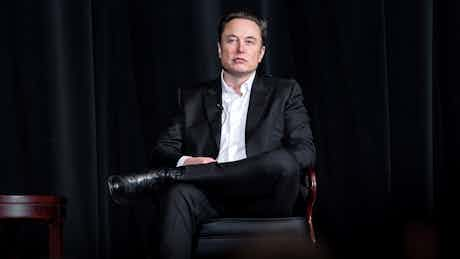Car changing is a big deal
Elon Musk splashes nearly $1bn (£735m) on Tesla shares. We break down what this move could mean for electric car owners in the UK.
Tesla CEO Elon Musk is back in the headlines after buying almost $1bn (£735m) of his own company’s stock. The news sent Tesla shares shooting up more than 8%, showing that investors are still backing Musk – despite attracting a wave of negative press and public backlash for his political views.
Musk snapped up 2.57 million shares last Friday, paying between $372 (£272) and $396 (£290) each. This comes just a week after Tesla’s board offered him a jaw-dropping $1tn (£767bn) pay deal, making it clear they’re fully behind him.
Tesla isn’t just about electric cars anymore. Musk is pushing into robotics, AI, and even self-driving “robotaxis.” He’s also been calling for more control at Tesla, hinting that he’ll explore other tech projects if he doesn’t get it.
It’s not been all smooth sailing, though. Tesla’s sales in Europe actually dropped by 11% in 2024 after a big 56% jump in 2023. Analysts say that’s down to tougher competition and a crowded EV market. Tesla hopes to turn things around with cheaper versions of the Model 3 and Model Y, which could make EVs more accessible for UK buyers.
So, are you interested in a Tesla? Remember, you can buy a brand new or used car right here on Carwow. And you can sell your car, too. We’re here to help you through every step of your car-changing journey.
What does this mean for UK customers?

For UK drivers, Tesla’s moves could have a few interesting effects. The company’s plans for cheaper versions of the Model 3 and Model Y might make EVs more affordable, though packing in new tech could push prices back up.
If Tesla uses its recent stock cash boost to speed up production, deliveries could get quicker, which is always welcome. For anyone invested in Tesla through pensions or ETFs (exchange-traded funds), the stock surge might be good news. And as Tesla expands its lineup, other EV makers in the UK may respond, giving buyers more choices and possibly better deals.
Can a cheaper Tesla save the brand?
For months, the company has been teasing new “more affordable” models which are rumoured to be stripped-down versions of the Model Y and Model 3. Originally, those were meant to start production in early 2025. Whether they’ve actually done that remains to be seen.
An affordable Tesla – something closer to £25,000 – could be a game-changer, especially here in the UK where electric car buyers are crying out for budget-friendly options with decent range. This move could also mean stepping up to compete with Chinese EV makers such as BYD, who are really gaining ground in UK sales.
Despite all the headlines about Musk’s political activity in the US, Tesla’s board says he’s fully focused on the company again. So, for UK drivers, that means buying a Tesla isn’t just about getting a car – it’s about keeping an eye on the tech and what Musk plans to do next.
Car change? Carwow!
Looking for a new set of wheels? With Carwow you can sell your car quickly and for a fair price – as well as find great offers on your next one. Whether you’re looking to buy a car brand new, are after something used or you want to explore car leasing options, Carwow is your one stop shop for new car deals.
Click here to follow us on WhatsApp, where you can keep up-to-date with all the latest news, reviews, advice guides and videos.
